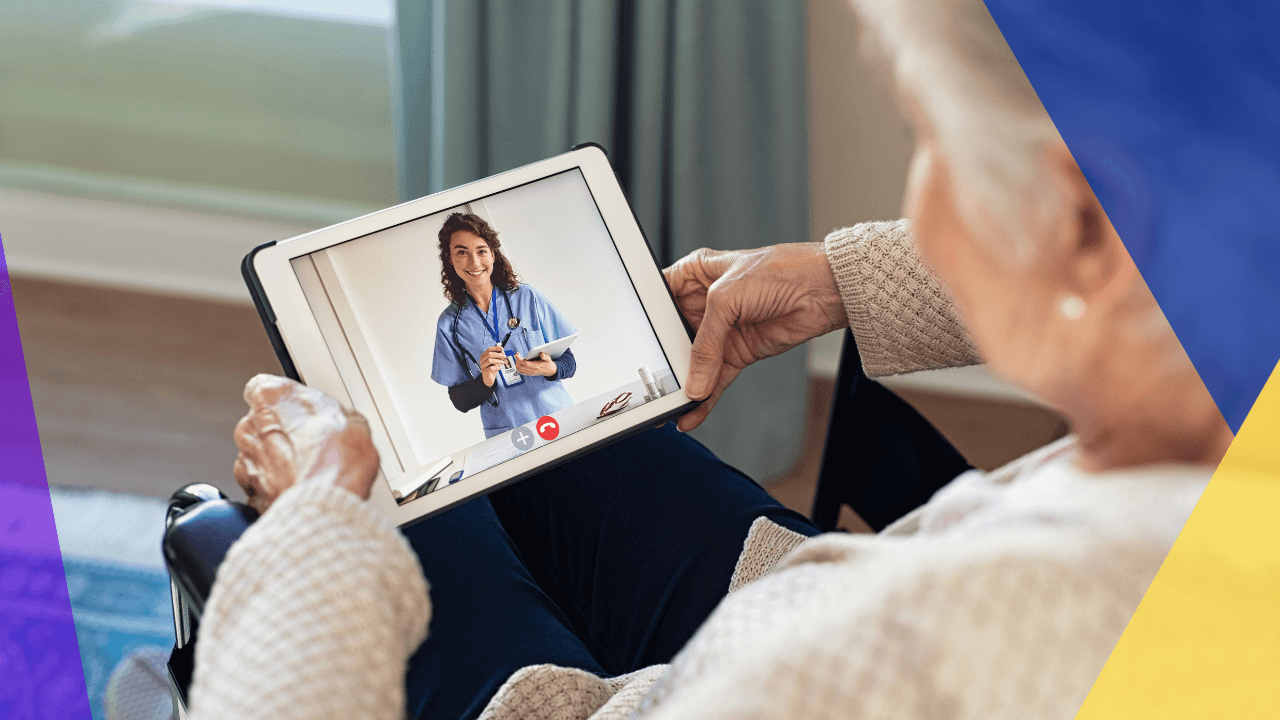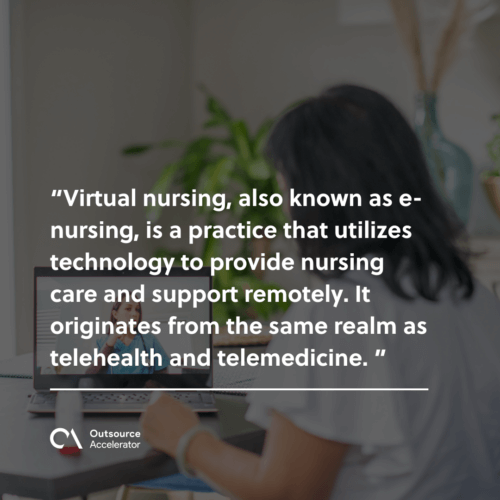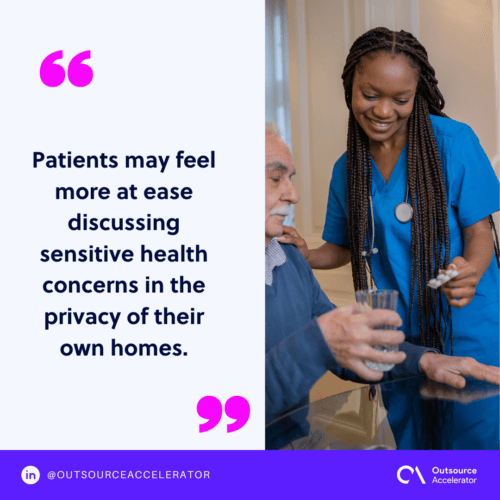Improving patient experience through virtual nursing

The healthcare industry is witnessing a remarkable shift towards innovative solutions designed to enhance patient care and make healthcare more accessible.
One such advancement is virtual nursing. Imagine having immediate access to a skilled nurse, not bound by the constraints of physical location, ready to offer guidance and support with just a few clicks.
This isn’t a distant future scenario but a present-day reality that’s reshaping how we think about patient care. This blend of technology and human touch is creating a lifeline for patients seeking quality care from the comfort of their own homes.
In this article, we’ll examine how virtual nursing enhances the patient experience and improves outcomes in ways we never thought possible.
Curious about this approach? Connext offers virtual nursing solutions that will enable your healthcare organization to reach out to more patients than ever.
What is virtual nursing?
Virtual nursing, also known as e-nursing, is a practice that utilizes technology to provide nursing care and support remotely. It originates from the same realm as telehealth and telemedicine.
Virtual nurses interact with patients through digital platforms instead of traditional in-person visits. They offer a range of services, including:
- Routing check-ups
- Chronic disease management
- Medication reminders
- Post-operative follow-ups
Virtual nursing aims to bridge the gap in healthcare access, particularly for those who have difficulty getting in-person care due to geographic, mobility, or other barriers.

Technology and tools used in virtual nursing
Virtual nursing relies on various technologies and tools to effectively provide remote care and support to patients.
Here are some of the key ones:
Telehealth platforms
These are comprehensive software solutions that enable virtual consultations between nurses and patients. They facilitate real-time communication and interactions, ensuring continuity of care and efficient management of patient information.
Electronic health records
Healthcare providers retain digital representations of their patients’ medical histories using electronic health record (EHR) systems. They include comprehensive patient data, such as:
- Diagnoses
- Medications
- Treatment plans
- Test results
They ensure that nurses have access to up-to-date patient information, enabling informed decision-making and coordinated care.
Remote patient monitoring devices
Remote monitoring devices are diagnostic tools that can transmit data to healthcare providers. These include wearable sensors, blood pressure monitors, glucose meters, and pulse oximeters.
These devices allow nurses to track patients’ vital signs and health metrics in real-time, enabling early detection of potential issues and timely interventions.
Secure messaging tools
Secure messaging platforms enable encrypted communication between nurses and patients, ensuring confidentiality and compliance with health privacy regulations.
Communication tools provide a safe and convenient way for patients to ask questions, share updates, and receive guidance from nurses outside of scheduled appointments.
7 benefits of virtual nursing for patients
The benefits of virtual nursing for patients are manifold, and they significantly contribute to improving healthcare accessibility, patient engagement, and overall health outcomes.
Here are some advantages of virtual nursing for patients:
1. Increased access to care
Virtual nursing eliminates geographical barriers, allowing patients in remote or underserved areas to access healthcare services without needing to travel long distances.
This increased accessibility is especially beneficial for individuals with limited mobility or transportation options.
2. Convenience and flexibility
Patients can receive care from the comfort of their own homes, reducing the need for time-consuming travel and minimizing disruptions to their daily routines.
Virtual nursing appointments can often be scheduled at a mutually convenient time, allowing for greater flexibility.
3. Personalized care and support
Virtual nursing facilitates more frequent and personalized communication between nurses and patients. It fosters stronger therapeutic relationships and enables tailored, patient-centered care plans.
4. Empowerment and education
Patients have access to a wealth of health-related information and educational resources through virtual nursing platforms.
This encourages patients to take an active role in their healthcare, increasing their knowledge and confidence in managing their conditions.
5. Improved health outcomes
Virtual nursing enables early identification of health issues, allowing for prompt intervention and treatment.
It also provides ongoing support more easily, helping to manage symptoms and prevent complications, ultimately leading to better health outcomes.
6. Reduced hospital visits and readmissions
By providing ongoing virtual support and monitoring, virtual nursing helps reduce the need for unnecessary hospital visits and readmissions. It promotes continuity of care and decreases healthcare costs.
7. Privacy and confidentiality
Patients may feel more at ease discussing sensitive health concerns in the privacy of their own homes. This often leads to more open communication and preserving confidentiality.

Connext’s virtual nursing services
Outsourcing virtual nursing can bring significant benefits to your healthcare organization. However, finding the right outsourcing partner is crucial to ensuring quality of care, patient safety, and regulatory compliance.
Connext understands the challenges and opportunities of virtual nursing outsourcing.
Its team of qualified registered nurses, along with its talent acquisition and management solutions, ensures that you gain access to top-notch expertise, seamless 24/7 support, and cost-effective staffing solutions.
By collaborating with Connext, you can ensure that your patients receive the highest standard of care through expertly managed virtual nursing services.







 Independent
Independent




